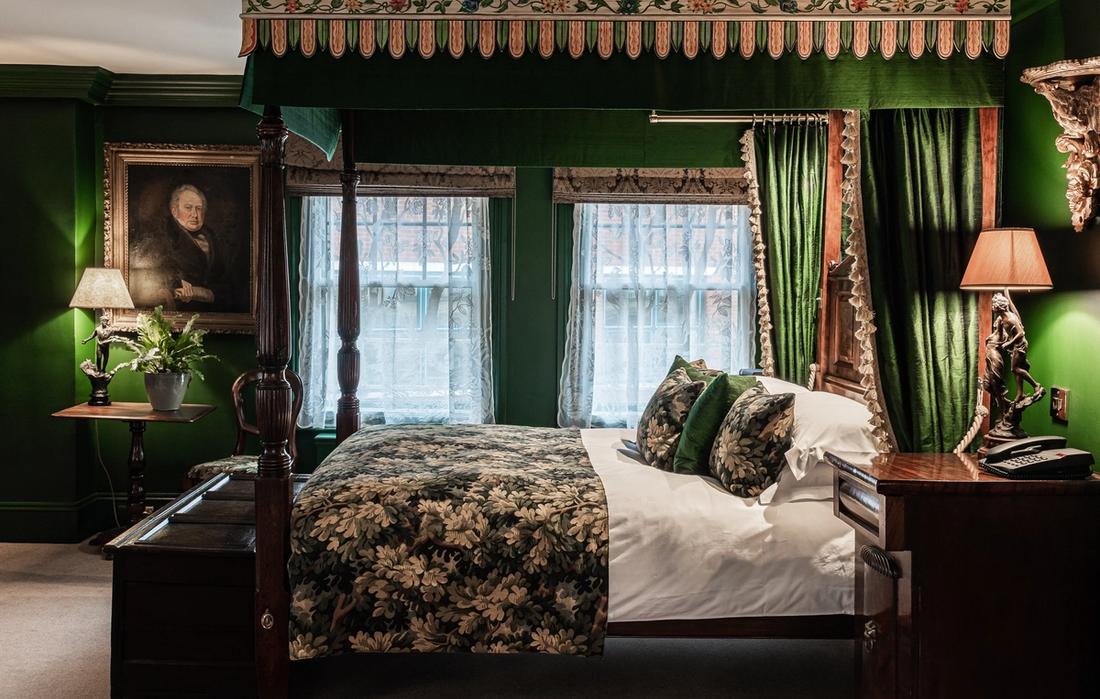The Good Hotel Guide is the leading independent guide to hotels in Great Britain & Ireland, and also covers parts of Continental Europe. The Guide was first published in 1978. It is written for the reader seeking impartial advice on finding a good place to stay. Hotels cannot buy their way into the Guide. The editors and inspectors do not accept free hospitality on their anonymous visits to hotels. All hotels in the Guide receive a free basic listing. A fee is charged for a full web entry.
The Good Hotel Guide
About Us
Independent
Recommended
Trusted
Independent
Recommended
Trusted

Silence is bliss
All blog posts
3 minutes
2 Jun 2018
Silence is bliss
All blog posts
3 minutes
2 Jun 2018
By Adam Raphael

Music may be the food of love, but muzak—ugh! Admittedly the Guide is not impartial on this issue, but this bee in our bonnet is shared by many GHG readers. ‘Whatever happened to silence?’ one asked in exasperation. Another wrote this week: ‘I could have done without the tacky music which was very intrusive.’ Still another reader wrote: ‘Most annoying was the background music which seemed to be Radio 2. I asked the manager if he could turn it off. He substituted a looped recording of Simon and Garfunkel, calculating, no doubt, that it was more of our era.’
Sadly, most hoteliers continue to insist on piping Muzak down the ears of their guests. I suppose it depends on the sort of custom they are trying to attract. But many guests are oblivious, and a minority hate it. The Guide has long been a supporter of an excellent anti-muzak campaigning organisation called Pipedown, several of whose members are distinguished musicians. But neither they nor we are winning this battle.
Ruth Watson, the doyenne of the Crown and Castle in Orford, Suffolk, wrote to me after a guest complained about the lack of muzak in the dining room: ‘Background music is by definition, banal, processed and generic—in fact the antithesis of music. Furthermore, anyone who likes it must be cloth-eared, tasteless and melophobic. But as I am a polite hotelier, I didn’t say (all this to the complaining guest).’
Ruth, a great character and an outstanding hotelier, is an exception. Many GHG hoteliers continue to play poorly amplified rubbish in their dining rooms even if they personally dislike it. One told me: ‘I have four tapes which I play in a rota. I never listen.’ Another Welsh hotel, Fairyhill, which used to have an entry in the Guide, refused when I asked during dinner if it would turn off an atonal whistling dirge saying politely: ‘We like it.’
That’s the trouble with music. There are few more divisive issues. Whether it’s jazz, pop, classical, opera, or easy listening, the selection is just as likely to irritate as to give pleasure. That is why railway stations play Bach through their loudspeakers; they know it is the most effective way to deter rowdy teenagers from loitering. If they played hip-hop, they might attract a better class of hooligan.
As we grow older, we become less tolerant of other people’s music. Young ears can effortlessly block sounds they don’t want to hear. But that is a knack which declines in old age. As many hotel guests are 50 plus, I would have thought that hoteliers would do everything they could to not irritate an important part of their custom. The Pig group of hotels, founded by Robin Hutson, are deservedly popular. But we receive complaints from GHG readers about being deafened by the sheer volume of their background music. Is that wall of sound an essential part of the group’s commercial success? I doubt it.
Muzak is not the only problem. The last thing one wants when visiting a Cornish hotel is to be subject at breakfast to a catalogue of the world’s woes on BBC’s Radio 4 Today programme, complained one GHG reader. Certainly, when I go to the seaside, I want to hear waves in the morning, not the abrasive tones of John Humphrys.
I regard myself as a relatively calm character. But I totally lost it when staying at a plush hotel off the Florida coast on Little Palm Island. We came down to breakfast early so all we could hear in the open air beach café were humming birds and waves lapping on the shore. Suddenly this idyll was drowned out by a blast of loud Reggae. We were the only guests in the café so I asked the waitress if she would turn it off. ‘Yes, no problem,’ she replied. Nothing happened, so I asked again. Same answer, same result. So, I went to the music console and tore out every wire in sight. Blissful silence. Wicked, I know, but very satisfying.


